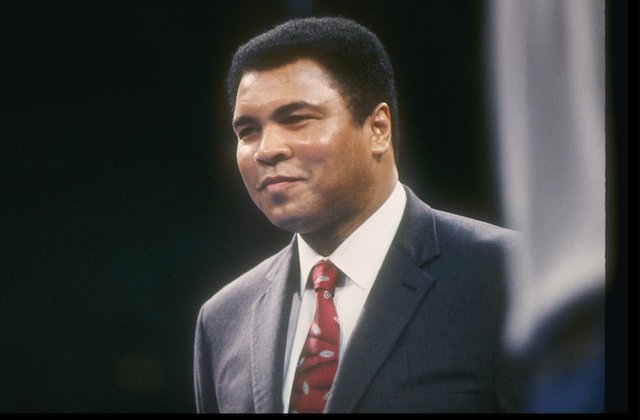Like the other luminaries who were taken too soon from us in 2016, Muhammad Ali left a legacy far greater than his boxing skills. He faced the American government head-on to protest racism and the Vietnam War at risk to his titles and his freedom. He used his public platform to confront America’s ugliest parts, kickstarting an important conversation about Black athletes’ and celebrities’ activist commitments in the process.
We can’t say enough about the man formerly known as Cassius Clay, who died on Friday (June 3). Even in death, he and his legacy still fight for appropriate recognition. As we collectively mourn the legend’s passing, we celebrate his immense contributions to racial justice discourse by sharing the following five videos of his most famous interviews. They stand out as insightful and sometimes painful reminders of the historical context of Ali’s life and the risks he took when he fought oppression.
In this news report, Ali discusses why he would not fight in Vietnam during a short comment. "My conscious won’t let me go shoot my brother, or some darker people, or some poor hungry people in the mud for big powerful America," he said. "And shoot them for what? They never called me nigger, they never lynched me, they didn’t put no dogs on me, they didn’t rob me of my nationality, rape and kill my mother and father."
Ali appeared on British talk show host Michael Parkinson’s show four times during the ’70s and early ’80s. The clip above comes from his first appearance in 1971. While Ali controversially espoused some racial separatist and sexist viewpoints during the interview, he also spoke important truths about how racism compelled his turn to activism and the Nation of Islam (NOI). Parkinson asked whether Ali considered all White men to be "White devils," per NOI leader Elijah Muhammad’s speeches. Ali’s response explored the idea of White allies:
So now I’m going to forget the 400 years of lynching and killing, raping and depriving my people feeding of justice and equality and the lowest of low last respect and I’m going to look at two or three White people who are trying to do right and don’t see the other million who are trying to kill me? I’m not that big of a fool…. It happens every day. And they rape our women daily. Policemen pull Black people over, hit them across the head and try them unjustly in court. And none of those good White folks can be found to help us. And what am I going to tell you? Get up and say Elijah Muhammad is wrong when he says they are the devil? They have to prove they are not the devil.
Here, Ali speaks to conservative commentator William F. Buckley and his audience about supposed conflict between his boxing and pacifist beliefs:
I would like to say boxing cannot be compared with war. We have gloves on, we have cushions, we have referees, we have judges, we have ambulances there—the intention is not to kill. We don’t have steel, we don’t have bullets, we don’t kill mama, kill daddy, kill baby—the intention is a sport, and we’re not there to kill.
Watching the above interview might be extremely uncomfortable, in no small part because of Ali’s obvious annoyance with fellow guest Sly Stone (who appears intoxicated). But they get to have an important conversation about how little Ali actually owes to White America, despite other guests’ "not all White people" arguments:
America wouldn’t be nothing if it wasn’t for my people slaving and working for four hundred years under you White people. Fighting in all of your wars. And then you talk about how if White people didn’t come to my fights, I wouldn’t have any money. We built the country.
And finally, this friendly reminder of what people often really mean when they make a point of accusing Black celebrities of arrogance.
What’s your favorite Ali interview? Let us know in the comments.
